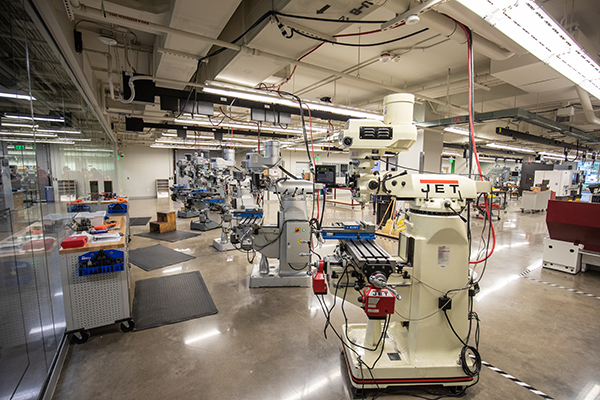
“Alexa, what is the big deal about receiving an Alexa Innovation Fellowship?”
The Alexa Innovation Fellowship inspires and enables the next generation of curious minds to invent the next big thing in conversational artificial intelligence (AI). The fellowship empowers faculty members to help student entrepreneurs innovate with voice interfaces.
Texas A&M University is the only recipient of the Alexa Innovation Fellowship in the state and just one of 10 in the country. The universities were selected based on a number of criteria, including their technology entrepreneurship curriculum, student access to grant funding and experience with Alexa.

Rodney Boehm ’78 will be the Texas A&M University Alexa Innovation Fellow. He is the director of engineering entrepreneurship and an associate professor of practice in the Texas A&M College of Engineering. In this role, he shares the knowledge he gained during 30 years in the telecommunications industry and five years at a startup with students of all levels. He has designed and implemented new opportunities for Aggie engineers to excel and test their skills inside and outside of the classroom through entrepreneurial events such as Aggies Invent, Invent for the Planet and Aggie Boss Talk. His slogan? “The sun never sets on innovation.”
Voice is the most natural, convenient interface and we believe it can change the way humans interact with technology,
“Voice is the most natural, convenient interface and we believe it can change the way humans interact with technology,” said Kevin Crews, the senior project manager for the Alexa Fund Fellowships. “To achieve this reality, we need to solve many hard, conversational AI challenges. We must help entrepreneurs build voice interfaces into their technologies. Since technology innovation and entrepreneurship starts on college campuses, we’re partnering with leading university entrepreneurship centers to help student-led startups across all industries supercharge their innovations with voice.”
Alexa is integrating into more and more of our daily lives. Texas A&M engineering students will now be able to integrate conversational AI not only into existing technology, but also create entirely new innovations to improve our world.

Enhancing Aggie entrepreneurship
Ten leading entrepreneurship center faculty members passionate about new technology were selected as the inaugural class of Alexa Innovation Fellows. The Alexa Innovation Fellowship empowers entrepreneurship centered faculty to serve as expert resources in voice interfaces on their campus. Innovation Fellows receive $25,000, Alexa devices, hardware kits, application program interfaces and regular training. The funding and devices are intended to help support student startups in pursuit of integrating voice with their technology using Alexa’s developer services, the Alexa Skills Kit and the Alexa Voice Service. The training opportunities will help demonstrate the art-of-the-possible with voice by introducing Innovation Fellows to successful Alexa Fund-backed entrepreneurs and the Alexa team in Seattle.

The Alexa Innovation Fellowship will enhance Texas A&M’s robust entrepreneurial engineering programs. Texas A&M engineering students currently practice their innovation and entrepreneurship skills in an immersive and creative environment. They have access to the new Fischer Engineering Design Center, a 60,000-square foot makerspace, a new 1,600-square foot engineering incubator and a variety of entrepreneurial programs like the I-Corps Site Fellows program, Engineering Entrepreneurship Living Learning Community and more.
No matter what stage students are at in the entrepreneurial process, they will find support at Texas A&M, whether it's generating an idea, forming a team, building prototypes or providing an engineering incubator. Texas A&M Engineering even gives students access to mentors, business leaders and legal advice. The Alexa Innovation Fellowship will benefit both Amazon and students in the creation of new smart technology.
“We live in a world where we interact with technology every day; however, most of the time we are limited by a keyboard or mouse,” said Boehm. “Conversational AI allows natural engagement to a very broad cross-section of the population. I am excited to see our students develop new applications that have not even been imagined.”

According to Amazon, conversational AI systems are computers that people can interact with simply by having a conversation. Conversational AI signals a huge advancement in the way we interact with technology. Unlike menus, touchscreens or mouse clicks, using our voice to have a conversation is one of the most natural ways to use a computer; it requires no learning curve. This new method of human-computer interaction makes powerful computer applications even easier to use and accessible to more people.